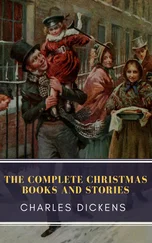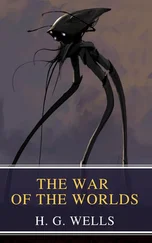D. Pedro. How now? two of my brother’s men bound? Borachio one!
Claud. Hearken after their offense, my lord.
D. Pedro. Officers, what offense have these men done?
Dog. Marry, sir, they have committed false report; moreover they have spoken untruths; secondarily, they are slanders; sixt and lastly, they have belied a lady; thirdly, they have verified unjust things; and to conclude, they are lying knaves.
D. Pedro. First, I ask thee what they have done; thirdly, I ask thee what’s their offense; sixt and lastly, why they are committed; and to conclude, what you lay to their charge.
Claud. Rightly reason’d, and in his own division, and by my troth there’s one meaning well suited.
D. Pedro. Who have you offended, masters, that you are thus bound to your answer? This learned constable is too cunning to be understood. What’s your offense?
Bora. Sweet Prince, let me go no farther to mine answer: do you hear me, and let this count kill me. I have deceiv’d even your very eyes. What your wisdoms could not discover, these shallow fools have brought to light, who in the night overheard me confessing to this man how Don John your brother incens’d me to slander the Lady Hero, how you were brought into the orchard, and saw me court Margaret in Hero’s garments, how you disgrac’d her when you should marry her. My villainy they have upon record, which I had rather seal with my death than repeat over to my shame. The lady is dead upon mine and my master’s false accusation; and briefly, I desire nothing but the reward of a villain.
D. Pedro.
Runs not this speech like iron through your blood?
Claud.
I have drunk poison whiles he utter’d it.
D. Pedro.
But did my brother set thee on to this?
Bora.
Yea, and paid me richly for the practice of it.
D. Pedro.
He is compos’d and fram’d of treachery,
And fled he is upon this villainy.
Claud.
Sweet Hero, now thy image doth appear
In the rare semblance that I lov’d it first.
Dog. Come, bring away the plaintiffs. By this time our sexton hath reform’d Signior Leonato of the matter; and, masters, do not forget to specify, when time and place shall serve, that I am an ass.
Verg. Here, here comes Master Signior Leonato, and the sexton too.
Enter Leonato, his brother [Antonio], and the Sexton.
Leon.
Which is the villain? Let me see his eyes,
That when I note another man like him
I may avoid him. Which of these is he?
Bora.
If you would know your wronger, look on me.
Leon.
Art thou the slave that with thy breath hast kill’d
Mine innocent child?
Bora.
Yea, even I alone.
Leon.
No, not so, villain, thou beliest thyself.
Here stand a pair of honorable men,
A third is fled, that had a hand in it.
I thank you, princes, for my daughter’s death;
Record it with your high and worthy deeds.
’Twas bravely done, if you bethink you of it.
Claud.
I know not how to pray your patience,
Yet I must speak. Choose your revenge yourself,
Impose me to what penance your invention
Can lay upon my sin; yet sinn’d I not,
But in mistaking.
D. Pedro.
By my soul, nor I,
And yet, to satisfy this good old man,
I would bend under any heavy weight
That he’ll enjoin me to.
Leon.
I cannot bid you bid my daughter live—
That were impossible—but I pray you both,
Possess the people in Messina here
How innocent she died, and if your love
Can labor aught in sad invention,
Hang her an epitaph upon her tomb,
And sing it to her bones, sing it to-night.
To-morrow morning come you to my house,
And since you could not be my son-in-law,
Be yet my nephew. My brother hath a daughter,
Almost the copy of my child that’s dead,
And she alone is heir to both of us.
Give her the right you should have giv’n her cousin,
And so dies my revenge.
Claud.
O noble sir!
Your overkindness doth wring tears from me.
I do embrace your offer, and dispose
For henceforth of poor Claudio.
Leon.
To-morrow then I will expect your coming,
To-night I take my leave. This naughty man
Shall face to face be brought to Margaret,
Who I believe was pack’d in all this wrong,
Hir’d to it by your brother.
Bora.
No, by my soul she was not,
Nor knew not what she did when she spoke to me,
But always hath been just and virtuous
In any thing that I do know by her.
Dog. Moreover, sir, which indeed is not under white and black, this plaintiff here, the offender, did call me ass. I beseech you let it be rememb’red in his punishment. And also, the watch heard them talk of one Deformed. They say he wears a key in his ear and a lock hanging by it, and borrows money in God’s name, the which he hath us’d so long and never paid that now men grow hard-hearted and will lend nothing for God’s sake. Pray you examine him upon that point.
Leon. I thank thee for thy care and honest pains.
Dog. Your worship speaks like a most thankful and reverent youth, and I praise God for you.
Leon. There’s for thy pains.
Dog. God save the foundation!
Leon. Go, I discharge thee of thy prisoner, and I thank thee.
Dog. I leave an arrant knave with your worship, which I beseech your worship to correct yourself, for the example of others. God keep your worship! I wish your worship well. God restore you to health! I humbly give you leave to depart, and if a merry meeting may be wish’d, God prohibit it! Come, neighbor.
[Exeunt Dogberry and Verges.]
Leon.
Until to-morrow morning, lords, farewell.
Ant.
Farewell, my lords, we look for you to-morrow.
D. Pedro.
We will not fail.
Claud.
To-night I’ll mourn with Hero.
Leon. [To the Watch.]
Bring you these fellows on.—We’ll talk with Margaret,
How her acquaintance grew with this lewd fellow.
Exeunt [severally].
¶
Enter Benedick and Margaret, [meeting].
Bene. Pray thee, sweet Mistress Margaret, deserve well at my hands by helping me to the speech of Beatrice.
Marg. Will you then write me a sonnet in praise of my beauty?
Bene. In so high a style, Margaret, that no man living shall come over it, for in most comely truth thou deservest it.
Marg. To have no man come over me? Why, shall I always keep below stairs?
Bene. Thy wit is as quick as the greyhound’s mouth, it catches.
Marg. And yours as blunt as the fencer’s foils, which hit, but hurt not.
Bene. A most manly wit, Margaret, it will not hurt a woman. And so I pray thee call Beatrice; I give thee the bucklers.
Marg. Give us the swords, we have bucklers of our own.
Bene. If you use them, Margaret, you must put in the pikes with a vice, and they are dangerous weapons for maids.
Marg. Well, I will call Beatrice to you, who I think hath legs.
Exit Margaret.
Bene. And therefore will come.
[Sings.]
“The god of love,
That sits above,
And knows me, and knows me,
How pitiful I deserve”—
I mean in singing; but in loving, Leander the good swimmer, Troilus the first employer of pandars, and a whole bookful of these quondam carpet-mongers, whose names yet run smoothly in the even road of a blank verse, why, they were never so truly turn’d over and over as my poor self in love. Marry, I cannot show it in rhyme; I have tried. I can find out no rhyme to ‘lady’ but ‘baby,’ an innocent rhyme; for ‘scorn,’ ‘horn,’ a hard rhyme; for ‘school,’ ‘fool,’ a babbling rhyme: very ominous endings. No, I was not born under a rhyming planet, nor I cannot woo in festival terms.
Читать дальше












![Уильям Шекспир - The Works of William Shakespeare [Cambridge Edition] [Vol. 1 of 9]](/books/746589/uilyam-shekspir-the-works-of-william-shakespeare-c-thumb.webp)